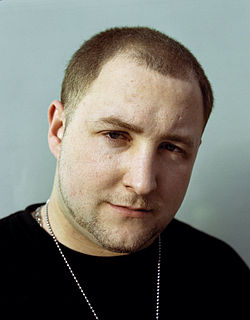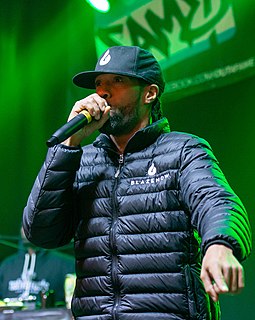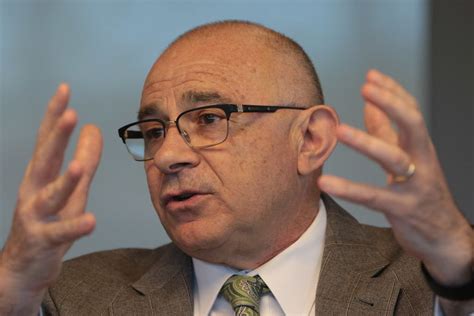A Quote by Sofia Quintero
There's just something about being a young, working class, working poor, person of color in New York City in the 80's that needs to be understood by people outside of that experience. The way I put it is that we created something really amazing, hip hop, when we weren't even supposed to survive.
Related Quotes
Not only did we survive AIDS, Reaganomics, poverty, racism, gang violence, police brutality, substance abuse - not only did we survive that, we created something endured. And whatever you might think of commercial hip hop now, there's a lot there to like and there's a lot there to critique and there's a lot of things you could say both about. But we created something that endured when we ourselves were not supposed to endure. When we ourselves were not supposed to survive and thrive. So I think that is worthy of respect and preservation and it's US history.
There needs to be structures in place to do something about misrepresentation about hip hop. When awards are given out and the media talk about hip hop, they're confused because they haven't done their homework on it so you have a case where there's an award for the most pop song in the world and it's called 'hip hop'.
When I talk about the city, I talk about a city that elevates people, which is the strength of New York. We always had the ability to do that. We had the services to do that: good schools, living-wage jobs. We're moving away from that toward a two-tiered system: a small group of very wealthy people and the rest of the city, poor and working poor.
In my mind it's so much fun to have something that has clues and is mysterious - something that is understood intuitively rather than just being spoon-fed to you. That's the beauty of cinema, and it's hardly ever even tried. These days, most films are pretty easily understood, and so people's minds stop working.
I am trying to get folks outside the hip-hop culture to understand why, despite the negatives, young people find hope and refuge in hip-hop. I'm hoping that young people immersed in the culture will work harder to capitalize on the possibilities for great social change that hip-hop represents as a national unified cultural youth movement.
Quentin Tarantino is a hip-hop artist. I told him, "You're hip-hop!" You keep seeing surprises, and a clip here and there, because Quentin is hip-hop. A hip-hop artist will drop a single, leak something over here, and drop something over there 'cause he knows it's hot. He's on the spot with the way he does things.
Quentin Tarantino is a hip-hop artist. I told him, 'You're hip-hop!' You keep seeing surprises, and a clip here and there, because Quentin is hip-hop. A hip-hop artist will drop a single, leak something over here, and drop something over there 'cause he knows it's hot. He's on the spot with the way he does things.





























